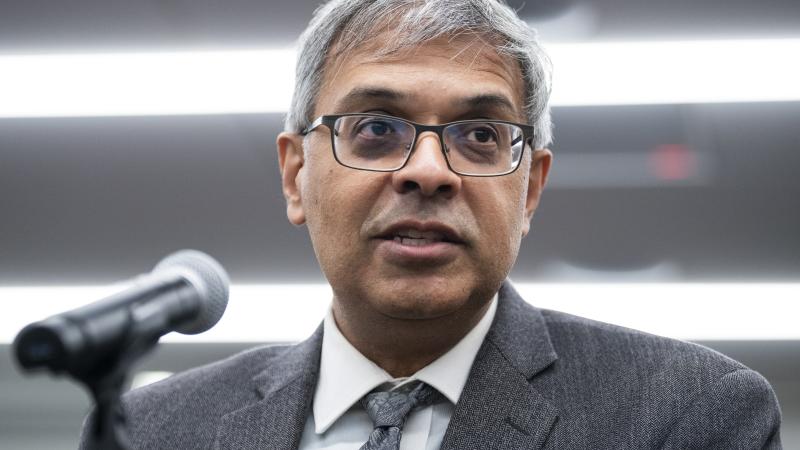Supreme Court decision momentous, but few surprises in opinion, future of abortion law
In both final opinion and leaked draft, Justice Alito blasts Roe v. Wade as 'egregiously wrong' from the start
The Supreme Court ruling to strike down Roe v. Wade, the landmark 1973 decision that established a constitutional right to an abortion, largely reflects the draft opinion for the case that was leaked last month, with the official announcement Friday resulting in little surprise and setting the expected path for the future of abortion law in the country.
The high court's decision that effectively overturned Roe was on the case Dobbs v. Jackson Women's Health Organization, which centered on a Mississippi law that banned abortion after 15 weeks of pregnancy, except in a medical emergency.
Mississippi, a Republican-led state, asked the nation's highest court to strike down a lower court ruling that stopped the 15-week abortion ban.
Supreme Court Justice Samuel Alito wrote the final majority opinion, upholding the constitutionality of the Mississippi law and overruling Roe.
"Roe was egregiously wrong from the start," Alito wrote. "It is time to heed the Constitution and return the issue of abortion to the people’s elected representatives."
The leaked draft opinion, also written by Alito, contained the same exact language and sparked widespread protest and speculation that the final draft could be markedly different.
In both documents, Alito also targeted Planned Parenthood v. Casey, a later case that upheld Roe.
"We hold that Roe and Casey must be overruled," each opinion stated. "The Constitution makes no reference to abortion, and no such right is implicitly protected by any constitutional provision, including the one on which the defenders of Roe and Casey now chiefly rely – the Due Process Clause of the Fourteenth Amendment.
"That provision has been held to guarantee some rights that are not mentioned in the Constitution, but any such right must be 'deeply rooted in this Nation's history and tradition' and 'implicit in the concept of ordered liberty.'"
Alito also wrote: "A right to abortion is not deeply rooted in the Nation's history and traditions. On the contrary, an unbroken tradition of prohibiting abortion on pain of criminal punishment persisted from the earliest days of the common law until 1973."
Legal experts were quick to point out how close the draft and final opinion were, apparently unchanged by the fierce public discourse, and an assassination attempt on Justice Brett Kavanaugh, in the interim weeks.
"The final opinion is probably 95% similar to the first draft — a few editing changes, and a section added to respond to the dissents," Tom Jipping, senior legal fellow at the Heritage Foundation, told Just the News. "Otherwise, it is the same: Roe was egregiously wrong, Casey did not even attempt to defend it but actually eliminated much of it, and there is no reason to keep it today."
Perhaps the biggest surprise was that Chief Justice John Roberts did not join in the opinion of his conservative colleagues on the court, instead writing a concurring one.
Roberts wrote he would have taken a "more measured course" with the case. He also declined to overturn Roe while arguing pre-viability abortion bans can stand.
Alito's opinion lambasted Roberts'.
The Supreme Court's ruling means questions about the legality of abortion will now be left up to the individual states.
With Roe overturned, 26 states are expected to place tighter restrictions on abortions, according to the Guttmacher Institute. Of those 26 states, 13 have laws in place that are designed to be "triggered" and take effect automatically or by quick state action with Roe no longer applying.
"I think, in the end, this is something that will work out for everybody," former President Trump said after the ruling, in an apparent message to his supporters who are pro-choice. "This brings everything back to the states where it has always belonged."
Alito was joined in the majority opinion by Justices Kavanaugh, Amy Coney Barrett, Neil Gorsuch, and Clarence Thomas.
Thomas and Kavanaugh also wrote concurring opinions explaining additional reasons why they believe Roe should be overturned.
The dissenting opinion supported by liberal-leaning Justices Stephen Breyer, Sonia Sotomayor, and Elena Kagan argued the high court betrayed "its guiding principles" by overturning Roe, decrying the impact the court's ruling would have on the legal doctrine of stare decisis, which states that courts must generally adhere to legal precedent except in exceptional circumstances."
They also wrote: "With sorrow for this Court, but more, for the many millions of American women who have today lost a fundamental constitutional protection – we dissent."












